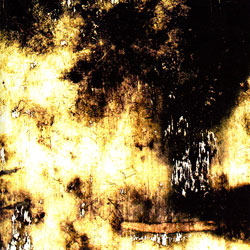
The trio of Michel Doneda, Christoph Schiller and Jonas Kocher performing music of delicate tension and great assurance recorded in the spectacular church at Ligerz, Switzerland.
In Stock
Quantity in Basket: None
Log In to use our Wish List
Shipping Weight: 5.00 units
EU & UK Customers:
Discogs.com can handle your VAT payments
So please order through Discogs
Sample The Album:
Michael Doneda-soprano saxophone, radio
Jonas Kocher-accordian, objects
Christoph Schiller-spinet, preparations
Click an artist name above to see in-stock items for that artist.
Label: Another Timbre
Catalog ID: at42
Squidco Product Code: 14586
Format: CD
Condition: New
Released: 2011
Country: UK
Packaging: Jewel Tray
Recorded by Simon Reynell at the Church of Ligerz near Biel/Bienne, Switzerland on June 23rd, 2010.
Music of delicate tension and great assurance, recorded in 2010 in the spectacular church at Ligerz, overlooking Lake Biel in Switzerland. "The generous acoustic of the church influenced our playing. We had to deal with space and silence....I think you can hear that in our music" Jonas Kocher
Another Timbre's Interview with Jonas Kocher, March 2011
The sense of 'edge' creates something that's really fragile but alsovery much alive at the same time." So first of all the title ///Grape Skin is rather unusual. What's the thinking behind it?
- The title has to do with the location where we recorded: a churchsurrounded by vineyards. The church was a striking venue which affectedour playing and became a kind of skin around the music. It was Michelwho suggested the title, and the three slashes remain a mystery for me.Maybe they represent the three musicians?
Though you'd played with both Michel and Christoph in differentcontexts, the recording session for '///Grape Skin' was your firstmeeting as a trio. Yet what strikes me immediately about the music isthat it feels very assured and confident. Where do you think thisquality comes from?
- For me this trio was a quite natural thing and I too felt a sense ofassurance, both at the time and when I listened back to the recording.Everyone knew each other's playing, and which qualities each of us werelikely to bring to the music. And we knew that we shared the same kindof musical understanding. From the moment the trio was proposed I wasconvinced that the music would be interesting.
"The church in Ligerz where we recorded has a very specialatmosphere.... The feeling you have there is one of great openness."
You said in a recent email that you felt that the location gave themusic "a poetic feel". What did you mean by this? - For me the churchin Ligerz where we recorded has a very special atmosphere. Its locationis amazing, up on a hillside in the middle of a vineyard and with agreat view over the lake at Biel and the island where Jean-JacquesRousseau lived for some weeks in the summer of 1765. The feeling youhave there is one of great openness. When you're inside the church, youdon't see any of this but the feeling stays strong in your perception.And I think that you can hear that in our music. The generous acousticof the church influenced our playing too. We had to deal with space andsilence. At the same time the environment around the church wasn'tcompletely quiet, and sounds from outside entered our music. At varioustimes you can hear birds, passing trains and even a boat siren on therecording. Theses sounds are totally integrated into our playing and arethe elements that link us with the amazing surroundings outside thechurch. These outside sounds give the music another kind of reality andfor me a strong poetic feel.
Most of the music on ///Grape Skin is quiet, and a lot of it is verybeautiful. Yet there's an edginess and unpredictability about it toothat for me makes it much more interesting than placid "music formeditation". Is this sense of 'edge' something that you consciously aimfor?
- The sense of 'edge' that you refer to is something that all three ofus share as musicians. When I play in duo with Michel, this is a veryimportant part of our music. I think it creates something that's reallyfragile but also very much alive at the same time.
"Playing electronics helped me come back to the accordion with new eyes,ears and visions for the instrument."
On your excellent solo cd 'Materials' (on Creative Sources) you playedboth accordion and electronics, but on '///Grape Skin' you just useaccordion. Why did you choose not to use electronics in this situation?
- The reason is simply that after recording 'Materials' I stoppedplaying electronics. Now I prefer to play accordion in an 'electronic'way, as you can hear on '///Grape Skin', rather than adding electronicsto my work. I stopped playing electronics simply because I came tofeel that the accordion is my instrument, the one I feel really closeto, physically and emotionally. I never felt that kind of bond, or thepotential to develop a truly personal language with electronics. Andthere are so many other people out there playing electronics that Ididn't feel I needed to add my voice to them.
So when did you first play accordion, and how long ago did you startimprovising with it?
- I started as a child and afterwards studied accordion classically. Ionly began improvising with it seriously in 2005. Before that Iimprovised almost exclusively with electronics. I somehow found itdifficult to improvise with the instrument that I'd studied with. Ithink I needed time to digest all the years of classical training.Playing electronics helped me come back to the accordion with new eyes,ears and visions for the instrument.
For a long time there weren't many people in improvised music playingaccordion, but in recent years several players have emerged (AlfredoCosta Monteiro, Luca Venitucci, Ute Volker, Esteban Algora, to name justa few). Do you think it's an instrument that's well suited toimprovisation?
- It's certainly an interesting instrument to work with in improvisationbut it also has strong limitations. The main one is that you can't workdirectly on the mechanics by which it produces sound in the way that youcan with most other instruments. You can use the body of theinstrument, but it's not very resonant; the sounds produced on it aremostly dry. But despite these limitations I love working with theaccordion. I think it's a really interesting mix between somethinghuman (it 'breathes' and is like a body) and something industrial (likea machine with lots of buttons and electronic sounds that are like sinewaves). And last but not least, the accordion has a very strong andparticular image in musical history that is interesting to play with. So for me the accordion's a huge field of experimentation, with lots ofplaying techniques still to be developed.
Add ///grape skin to cart
Artist Biographies
• Show Bio for Jonas Kocher "Jonas Kocher is a sound artist and accordionist born in 1977. He is collaborating with personalities from various backgrounds and in numerous artistic and social contexts. His work explores issues such as the listening, space and perception as well as the integration of different kind of random elements. His specific approach to his instrument involves at the same time physicality and reduction, uncontrolled playing and high precision. Jonas Kocher has a strong interest in process oriented works and unstable situations. As a sound artist he has realised works that are situated between composed theatre, installation and concert pieces. He got commissions from Ensemble Paul Klee, Biennale Bern 2010 & 2017, Ensemble Phoenix Basel, etc. and regularly collaborates with musicians such Michel Doneda, Joke Lanz, Axel Dörner, Hans Koch, Jacques Demierre and many more. Read the full biography on wikipedia Jonas Kocher is initiator of Bruit, a structure that fosters sound and interdisciplinary works." ^ Hide Bio for Jonas Kocher • Show Bio for Christoph Schiller "Christoph Schiller was born in 1963 in Stuttgart. He studied fine arts at the Kunstakademie Stuttgart and HfBK Hamburg. He later studied piano with Daniel Cholette and music theory in Basel. He has been playing concerts of improvised music on piano since 1987. In recent years the piano has been abandoned in favour of the lighter spinet, for which he has developed specific playing techniques which are influenced by inside piano techniques. Besides keyboard instruments his work with the voice has become increasingly important. He lives in Weil am Rhein and Basel." ^ Hide Bio for Christoph Schiller
3/31/2025
Have a better biography or biography source? Please Contact Us so that we can update this biography.
3/31/2025
Have a better biography or biography source? Please Contact Us so that we can update this biography.
Track Listing:
1. first membrane 17:41
2. second membrane 21:32
Improvised Music
Electro-Acoustic
European Improvisation, Composition and Experimental Forms
London & UK Improv & Related Scenes
Free Improvisation
Trio Recordings
Objects and Home-made Instruments
Search for other titles on the label:
Another Timbre.






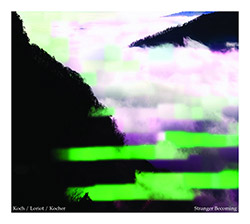
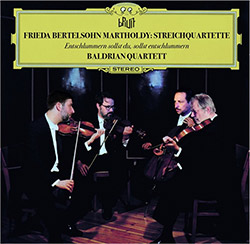
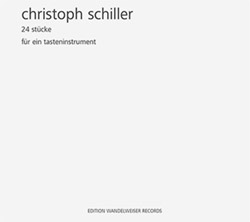
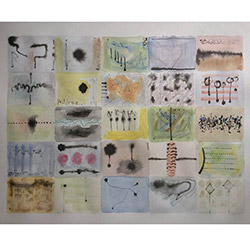

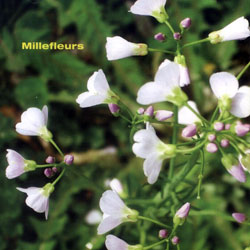
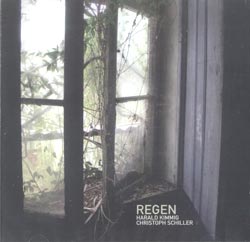

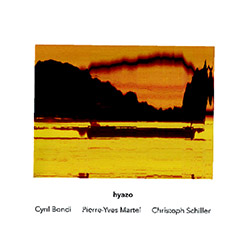

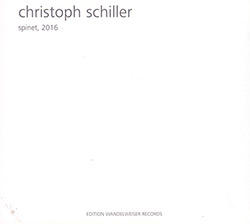


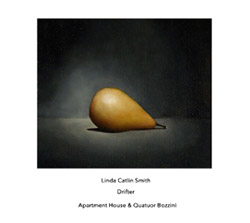
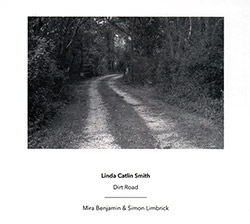
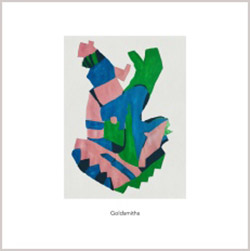
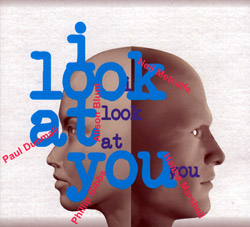

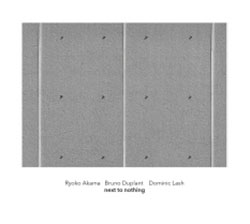
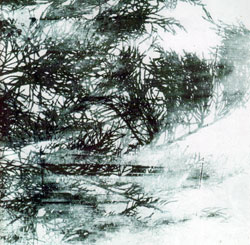
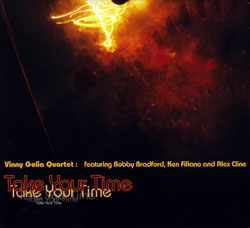

![Rodrigues, Ernesto / Nuno Torres / Guilherme Rodrigues: Whispers In The Moonlight - In Seven Movements [2CDs]](https://www.teuthida.com/productImages/misc4/35765.jpg)



![Cocks, Laura: FATHM [VINYL]](https://www.teuthida.com/productImages/misc4/36055.jpg)










![Ackerley / Prymek / Turner: All Hope With Sleeping Minds [CASSETTE]](https://www.teuthida.com/productImages/misc4/35950.jpg)
![Myers, David Lee : Tin Drop Tear [BOOK w/ DOWNLOAD]](https://www.teuthida.com/productImages/misc4/36030.jpg)



![Schindler, Udo / Sandy Ewen / Damon Smith: Munich Sound Studies Vols. 4, 5 & 6 [3 CDs]](https://www.teuthida.com/productImages/misc4/35966.jpg)






![Turbulence Orchestra & Sub-Units: Smear Out the Difficulties (Double Live) [2 CDs]](https://www.teuthida.com/productImages/misc4/36048.jpg)
![Perelman, Ivo / Tyshawn Sorey: Paralell Aesthetics [2 CDs]](https://www.teuthida.com/productImages/misc4/35871.jpg)


![Sjostrom, Harri: SoundScapes #4 Festival Berlin 2023 [3 CDs]](https://www.teuthida.com/productImages/misc4/35874.jpg)



![Glenn, Jordan: Flustered [CASSETTE]](https://www.teuthida.com/productImages/misc4/35948.jpg)


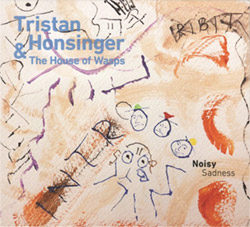
![Lindorff-Ellery, Evan: Church Recordings from Monhegan [CASSETTE]](https://www.teuthida.com/productImages/misc4/35949.jpg)
![Schindler, Udo / Werner Dafeldecker / Gunnar Geisse: Travelling Sound Images - Cognitive Transfers [Trio]](https://www.teuthida.com/productImages/misc4/35767.jpg)

![Egberth, Dennis: The Dennis Egberth Dynasty [VINYL]](https://www.teuthida.com/productImages/misc4/35549.jpg)


![Schindler, Udo / Rieko Okuda / Eric Zwang Eriksson: Disturbed Terrains [2 CDs]](https://www.teuthida.com/productImages/misc4/35330.jpg)






![Olencki, Weston : Pearls Ground Down To Powder [VINYL]](https://www.teuthida.com/productImages/misc4/35956.jpg)
![Myers, David Lee: Oculus [2CDs]](https://www.teuthida.com/productImages/misc4/35857.jpg)


![dustsceawung: dustsceawung [CASSETTE w/ Download]](https://www.teuthida.com/productImages/misc4/35753.jpg)




![Halls of the Machine: Atmospheres For Lovers And Sleepers [CASSETTE w/ DOWNLOAD]](https://www.teuthida.com/productImages/misc4/35806.jpg)



![AHC (Alexander Cooper): Lase [2 CDs]](https://www.teuthida.com/productImages/misc4/35754.jpg)



![Fagaschinski, Kai / Yan Jun : Graveyard Processions [VINYL w/ DOWNLOAD]](https://www.teuthida.com/productImages/misc4/35474.jpg)
![Brant, Cody / Carl Kruger: Smoke Detail [CASSETTE w/ DOWNLOAD]](https://www.teuthida.com/productImages/misc4/35551.jpg)








![Zorn, John / JACK Quartet: The Complete String Quartets [2 CDs]](https://www.teuthida.com/productImages/misc4/35609.jpg)

![Lonsdale, Eden: Dawnings [2 CDs]](https://www.teuthida.com/productImages/misc4/35480.jpg)







![Sanna, Claudio: Compositori Sardi Contemporanei II [2 CDs]](https://www.teuthida.com/productImages/misc4/35317.jpg)







![Zurria, Manuel: Fame di Vento [3 CDs]](https://www.teuthida.com/productImages/misc4/35167.jpg)

![Granberg, Magnus / Nattens Inbrott / Skogen: Holde Traume, Kehret Wieder! [2 CDs]](https://www.teuthida.com/productImages/misc4/35038.jpg)

![Electric Bird Noise / Derek Roddy: 8-10-22 [CD EP]](https://www.teuthida.com/productImages/misc4/35970.jpg)








![Elephant9 : Mythical River [VINYL]](https://www.teuthida.com/productImages/misc4/34624.jpg)



![Elephant9 with Terje Rypdal: Catching Fire [VINYL 2 LPs]](https://www.teuthida.com/productImages/misc4/35355.jpg)
![Deerlady (Obomsawin, Mali / Magdalena Abrego): Greatest Hits [VINYL]](https://www.teuthida.com/productImages/misc4/34876.jpg)







![Surplus 1980: Illusion of Consistency [CD]](https://www.teuthida.com/productImages/misc4/35069.jpg)
![Staiano, Moe: Away Towards the Light [VINYL + DOWNLOAD]](https://www.teuthida.com/productImages/misc4/35037.jpg)



![Caveira (Gomes / Sousa / Abras / Ferrandini): Ficar Vivo [VINYL]](https://www.teuthida.com/productImages/misc4/34643.jpg)
![Coley, Byron: Dating Tips for Touring Bands [VINYL]](https://www.teuthida.com/productImages/misc4/17906.jpg)

![Lost Kisses: My Life is Sad & Funny [DVD]](https://www.teuthida.com/productImages/misc4/lostKissesDVD.jpg)